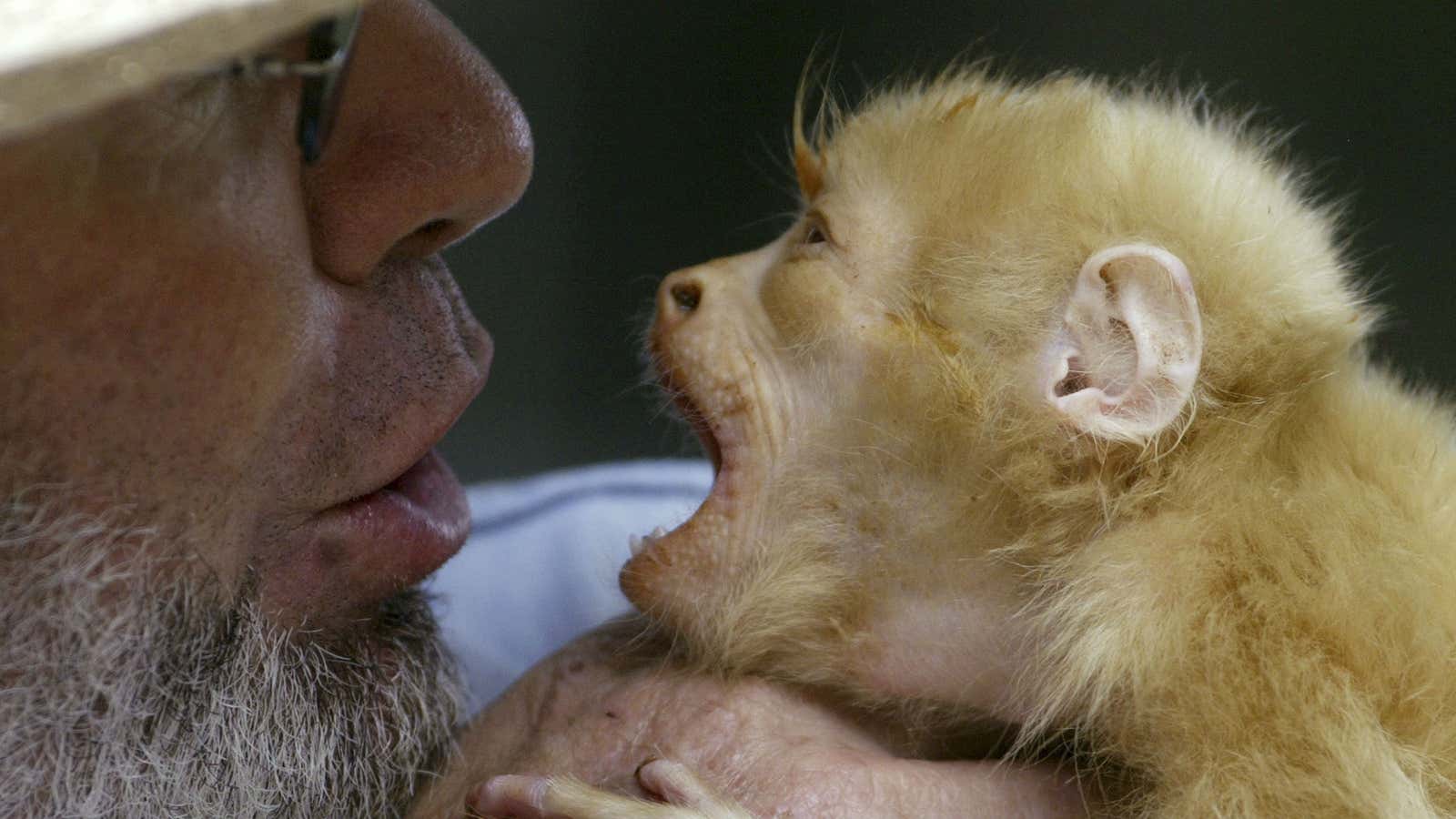You probably have more in common with the howler monkey facing you from behind the glass than you previously thought.
Monkeys are some of our closest primate relatives, and now researchers have reason to believe that we share a lot with those who live in zoos. Researchers from the University of Minnesota found that monkeys in captivity have gut bacteria more similar to that of humans than monkeys in the wild.
The team analyzed stool samples of 93 red-shanked douc monkeys and 56 mantled howler monkeys, some wild and some from zoos in Philadelphia, Pennsylvania, St. Paul, Minnesota, and Frankfurt, Germany. They found that zoo monkeys tended to have gut bacteria dominated by two species found frequently in humans, in the genera Prevotella and Bacteroides. Monkeys in the wild have much more diverse gut bacteria.
Scientists are only beginning to learn all the roles of the trillions of bacteria that live in and around animals and humans. Collectively called our microbiome, these bacteria have a co-dependent relationship with their hosts: We need them to carry out tasks like breaking down certain foods or molding our immune systems, and they need us to provide them nutrients and space to live. Behavior that changes our internal environment, like eating or taking medications, directly impacts our microbes, and vice versa.
The Minnesota researchers believe that the shift in the monkey microbiomes developed due a change from a natural diet to one that contains less fiber from grains. Certain populations of gut bacteria can’t survive without a steady supply of fiber. The remaining bacteria can flourish. Although this isn’t necessarily a bad trait, less-diverse microbiomes have been associated with all kinds of problems, including weight gain. And, we know that somehow, microbiomes tend to resemble the ones of previous generations.
What does this mean for captive monkeys? “We don’t know for certain that these new modern human microbes are bad, but on the other hand many studies are now showing that we evolved together with our resident microbes,” said Dan Knights, a veterinary biologist at the University of Minnesota and lead author of the paper, in a press release. “If that is the case, then it is likely not beneficial to swap them out for a totally different set.” In a separate email, he explained that many captive monkeys experience gastrointestinal stress, like diarrhea, gastroenteritis, and wasting—all of which are associated with unhealthy microbiomes.
Diet isn’t the only factor governing how microbiomes develop. It’s common for individuals within the same environment, regardless of species, to exchange microbes as well—we do it all the time with our pets and people we interact with every day. “It may also be caused by factors that we could not test, like increased stress, increased exposure to humans, and other lifestyle changes,” Knights said.
Knights and his colleagues are focused on what this microbial shift may mean for people who emigrate to the United States. “Our hypothesis is that they will quickly lose their native bacterial flora and acquire a modern Westernized human microbiome.”
